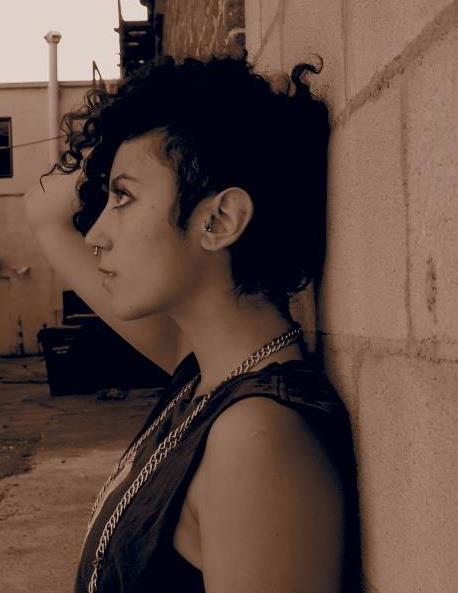“It’s our time.” She says, and I nod.
I’m in Brooklyn, chatting with a Muslim photographer friend of mine about her boundary-breaking magazine idea, one I intend to work on. We are sipping tea & day-dreaming of an artistic army of Middle-Easterners singing out across pages and websites about all that we desire, using words and images to tell our truths. For all the feminism of our mothers, we are still the generation raised to say sex in hushed tones, to mumble orgasm as we fill our mouths with baklava.
It is our time. We are not alone. I have, through two very different tours (one book related/ one performance art related), read my story from Love, InshAllah to audiences up & down the east coast. The most common response? The inaudible sigh. The relief that sex is not a dirty thing you tuck in a drawer somewhere. I have stood on a stage and told their story, my story, our story. We are not just coming out, we’re coming clean. We inherit so much from our parents as young girls- curls, hazel eyes, olive skin, soft stature, strong bones, pursed lips, taste in tea, favorite songs, even our animated fingertips- yet we refuse to inherit the shame. The shame ends here.
As a young Persian girl, I knew my duties. It was in fact, my grandmother, not my mother, who wanted to teach me to cook a proper pomegranate stew, who whispered in my ear the tales of the husbands to come, the men who would take care of me if I could only sew a straight line. My mother was an ardent women’s right activist who, from my birth, preached career over carriage. But that’s all surface, because here is what I learned from both: if you have, give, no matter the cost. Save everyone. If you buy it for someone else, it doesn’t count. You do not ask for help, you are the help. Never admit to flaw. If others fail, you should have done something better. What you want comes last.
My grandmother and mother were anchors that kept our family ties despite oceans, depression, exile, alcoholism, and all the small splinters that split bloodlines apart. They were a backbone, a hand, a shoulder, whole body, all for others.
Is it any wonder I became codependent, coming from the this and the land of tarof? The Persian dance is a gracious three-step back and forth where nobody admits desire. I would always make lovers ask me for consent three times before I granted it. Only the most tenacious stayed. How hard it must be, attempting to please someone who feels guilty simply for taking the time to enjoy her own body. And so, now, I choose another dance. A solo modern dance, full of loud gestures and guttural shakes. A dance that says- this is what I want. This is what I deserve. Please, do this.
Much of the time, it means saying no. No is the hardest word. If there were only ten of me, to fight every fight, host every person, organize every event, and give love to all those who could use a kind touch. But I am one, and even less if not tended to. My mother once gave me a card that said “Is the rose selfish for craving sunshine, and water, before giving off scent?”
We must plant ourselves. It is our time. I am making a Lomography film series of semi-nudes portraits featuring gender-nonconforming models, and I’m posing in it myself. I am single. I am turning down projects that are not meant for me. I am taking space. I am attempting to feel worth sunshine. Worth spotlight. Worth microphone. We must bloom, shine, and sing.
I am Persian. I have sex. Marriage is not my priority. My art is my life work. I like getting on stages. I am nobody but myself, and it’s the most exciting person I could ever hope to be.
—
Najva Sol is an Iranian-American writer, photographer, and multimedia artist. She received her BA in Creative Writing from The New School in NYC. Najva is co-founder of Lowbrow Society for the Arts, where she curates fabulous art extravaganzas. Her writing has been published in Look Look Magazine, AM New York, Bitch, and more. Her photos & performances have been featured in the National Queer Arts Festival (2010 + 2011), numerous galleries, Commonwealth Club, and The Nuyorican. Lowbrow Society has appeared in Nerve.com, New York Press, San Francisco Bay Guardian, and Time Out New York. When not making art, she is active in various non-profits that deal with some combination of art presenting, queer empowerment, and social justice. For info about Najva’s events and art, visit her website.












